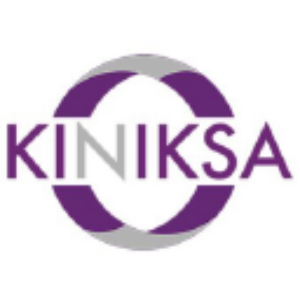Kiniksa Reports Fourth Quarter and Full-Year 2020 Financial Results and Corporate and Pipeline Activity
Rhea-AI Summary
Kiniksa Pharmaceuticals reported a net loss of $53.7 million in Q4 2020, compared to $31.8 million in Q4 2019, and a net loss of $161.4 million for the full year. Total operating expenses fell to $157.4 million for 2020 versus $170.0 million in 2019. The company anticipates launching rilonacept in recurrent pericarditis in 1H 2021, pending FDA approval. With approximately $323 million in cash reserves, Kiniksa is well-positioned to fund operations into 2023. Upcoming clinical data from KPL-404 and mavrilimumab is expected in 1H 2021.
Positive
- Launch of rilonacept anticipated in 1H 2021 pending FDA approval.
- Approximately $323 million cash reserves provide strong financial positioning.
- Regulatory milestone payment to Regeneron achieved, validating pipeline progress.
Negative
- Net loss increased in Q4 2020 to $53.7 million from $31.8 million in Q4 2019.
- Full-year net loss only slightly improved from $161.9 million in 2019 to $161.4 million in 2020.
News Market Reaction 1 Alert
On the day this news was published, KNSA declined 6.43%, reflecting a notable negative market reaction.
Data tracked by StockTitan Argus on the day of publication.
- Strong execution across pipeline of immune-modulating assets throughout 2020 enables multiple milestones in 2021 -
- Rilonacept in recurrent pericarditis granted priority review, with PDUFA goal date of March 21, 2021 -
- Clinical data expected in 1H 2021 from KPL-404 (anti-CD40) Phase 1 clinical trial and mavrilimumab Phase 2 clinical trial in severe COVID-19 -
- Year-end 2020 cash reserves of approximately
HAMILTON, Bermuda, Feb. 23, 2021 (GLOBE NEWSWIRE) -- Kiniksa Pharmaceuticals, Ltd. (Nasdaq: KNSA) (“Kiniksa”), a biopharmaceutical company with a pipeline of assets designed to modulate immunological pathways across a spectrum of diseases, today reported fourth quarter and full-year 2020 financial results and corporate and pipeline activity.
“Kiniksa delivered outstanding performance in 2020, with encouraging clinical data across our pipeline as well as Breakthrough Therapy designation or Orphan Drug designation for rilonacept, mavrilimumab and vixarelimab,” said Sanj K. Patel, Chief Executive Officer and Chairman of the Board of Kiniksa. “Building on this momentum, we expect to launch rilonacept in recurrent pericarditis, pending FDA approval, in the first half of 2021. We also anticipate final Phase 1 data for KPL-404, our anti-CD40 program, in which data generated to-date support the best-in-class potential of this molecule and the opportunity for its evaluation in multiple devastating autoimmune diseases. Further, we expect data from the fully-enrolled mavrilimumab Phase 2 clinical trial in severe COVID-19 in the first half of this year. With these significant advances, it is important to highlight we are well capitalized with cash reserves of approximately
Pipeline Activity
Rilonacept (IL-1α and IL-1β cytokine trap)
- Kiniksa is preparing for the commercial launch of rilonacept in recurrent pericarditis in the first half of 2021, if approved by the U.S. Food and Drug Administration (FDA).
- The FDA accepted the supplemental Biologics License Application (sBLA) for rilonacept in recurrent pericarditis with priority review and assigned a Prescription Drug User Fee Act (PDUFA) goal date of March 21, 2021.
- Upon approval in recurrent pericarditis, Kiniksa will commence sales and distribution of rilonacept for the approved indications in the United States, including cryopyrin-associated periodic syndromes (CAPS), and deficiency of IL-1 receptor antagonist (DIRA), and evenly split profits with Regeneron Pharmaceuticals, Inc. (Regeneron).
- Kiniksa is building commercial competencies in-house, including sales operations, value and access, and sales and marketing teams. In addition, the company is generating evidence on unmet need and disease burden, building disease awareness with payers, physicians, and advocacy groups, and establishing core capabilities such as distribution, patient services and data management.
- Kiniksa achieved a regulatory milestone in the fourth quarter of 2020, which triggered a
$7.5 million payment to Regeneron. The company is obligated to make a regulatory milestone payment of$20 million through the potential approval of rilonacept in recurrent pericarditis.
Mavrilimumab (monoclonal antibody inhibitor targeting GM-CSFRα)
- Kiniksa expects to provide next steps for mavrilimumab, including for giant cell arteritis (GCA), in the first half of 2021.
- Kiniksa is conducting a Phase 2/3 clinical trial of mavrilimumab in severe COVID-19 pneumonia and hyperinflammation.
- Kiniksa completed enrollment in the Phase 2 portion of the clinical trial and expects data in the first half of 2021.
- Kiniksa is enrolling patients in the Phase 3 portion of the clinical trial.
Vixarelimab (monoclonal antibody inhibitor of signaling through OSMRβ)
- Kiniksa is conducting a Phase 2b dose-ranging clinical trial of vixarelimab in prurigo nodularis.
- The Phase 2b clinical trial is expected to enroll approximately 180 patients experiencing severe pruritus. Patients will be randomized to receive vixarelimab or placebo subcutaneously once-monthly.
- The primary efficacy endpoint is the percent change from baseline in the weekly-average Worst-Itch Numeric Rating Scale (WI-NRS) at Week 16.
- Key secondary efficacy endpoints include the proportion of patients achieving a greater-than-or-equal-to 4-point weekly-average WI-NRS reduction at Week 16 and the proportion of patients achieving a 0/1 score (clear/almost clear) on the prurigo nodularis-investigator’s global assessment (PN-IGA) at Week 16.
KPL-404 (monoclonal antibody inhibitor of signaling between CD40 and CD40L)
- Kiniksa expects final data and safety follow-up from all cohorts of the single-ascending-dose Phase 1 clinical trial of KPL-404 in the first half of 2021.
- Preliminary Phase 1 data showed full receptor occupancy through Day 29 at the 3 mg/kg intravenous dose.
- This data corresponded with complete suppression of the T-cell Dependent Antibody Response (TDAR) to the novel antigen keyhole limpet hemocyanin (KLH) through Day 29.
- KPL-404 is a monoclonal antibody inhibitor designed to disrupt CD40-CD40 ligand (CD40L) signaling, a well-known pathway that plays a critical role in regulating B cell proliferation and T cell activation as well as antibody production.
- Dysregulation of the CD40-CD40L pathway has been implicated in a broad range of autoimmune diseases including rheumatoid arthritis, Sjogren’s syndrome, Graves’ disease, systemic lupus erythematosus and the prevention of solid organ transplant graft rejection.
Financial Results
- Net loss for the fourth quarter of 2020 was
$53.7 million , compared to a net loss of$31.8 million for the fourth quarter of 2019. Net loss for the full-year 2020 was$161.4 million , compared to a net loss of$161.9 million for the full-year 2019. - Total operating expenses for the fourth quarter of 2020 were
$52.9 million , compared to$32.6 million for the fourth quarter of 2019. Total operating expenses for the full-year 2020 were$157.4 million , compared to$170.0 million for the full-year 2019.- Non-cash, share-based compensation expense for the fourth quarter of 2020 was
$6.3 million , compared to$5.0 million for the fourth quarter of 2019. Non-cash, share-based compensation expense for the full-year 2020 was$20.9 million , compared to$15.1 million for the full-year 2019. - Total operating expenses for the fourth quarter and full-year 2020 included a
$7.5 million payment made to Regeneron related to our achievement of a regulatory milestone.
- Non-cash, share-based compensation expense for the fourth quarter of 2020 was
- As of December 31, 2020, the company had cash, cash equivalents and short-term investments of
$323.5 million and no debt.
Financial Guidance
- Kiniksa expects that its cash, cash equivalents and short-term investments will fund its current operating plan into 2023.
About Kiniksa
Kiniksa is a biopharmaceutical company focused on discovering, acquiring, developing and commercializing therapeutic medicines for patients suffering from debilitating diseases with significant unmet medical need. Kiniksa’s product candidates, rilonacept, mavrilimumab, vixarelimab and KPL-404, are based on strong biologic rationale or validated mechanisms, target underserved conditions, and offer the potential for differentiation. These pipeline assets are designed to modulate immunological pathways across a spectrum of diseases. For more information, please visit www.kiniksa.com.
About Rilonacept
Rilonacept is a weekly, subcutaneously-injected, recombinant dimeric fusion protein that blocks interleukin-1 alpha (IL-1α) and interleukin-1 beta (IL-1β) signaling. Rilonacept was discovered and developed by Regeneron and is approved by the FDA under the brand name ARCALYST® for the treatment of CAPS, specifically Familial Cold Autoinflammatory Syndrome and Muckle-Wells Syndrome, and DIRA. Rilonacept in recurrent pericarditis is an investigational drug. The FDA granted Breakthrough Therapy designation to rilonacept for the treatment of recurrent pericarditis in 2019 and Orphan Drug designation to rilonacept for the treatment of pericarditis in 2020.
Important information about ARCALYST® (rilonacept) Injection
IL-1 blockade may interfere with immune response to infections. Serious, life-threatening infections have been reported in patients taking ARCALYST. ARCALYST should be discontinued if a patient develops a serious infection. Taking ARCALYST with TNF inhibitors is not recommended because this may increase the risk of serious infections.
Patients should not receive a live vaccine while taking ARCALYST. It is recommended that prior to initiation of therapy with ARCALYST patients receive all recommended vaccinations, as appropriate, including pneumococcal vaccine and inactivated influenza vaccine. In the initial development program for ARCALYST, six serious adverse reactions were reported by four patients: Mycobacterium intracellular infection, gastrointestinal bleeding and colitis, sinusitis and bronchitis and Streptococcus pneumoniae meningitis. The most commonly reported adverse reactions associated with ARCALYST were injection site reaction and upper respiratory tract infection. Patients should be monitored for changes in their lipid profiles and provided with medical treatment if warranted. Treatment with immunosuppressants, including ARCALYST, may result in an increase in risk of malignancies. Hypersensitivity reactions associated with ARCALYST administration in clinical studies have been rare. If a hypersensitivity reaction occurs, administration of ARCALYST should be discontinued and appropriate therapy initiated.
About Mavrilimumab
Mavrilimumab is an investigational fully-human monoclonal antibody that targets granulocyte macrophage colony stimulating factor receptor alpha (GM-CSFRα). Mavrilimumab achieved prospectively-defined primary endpoints of efficacy and safety in over 550 patients with rheumatoid arthritis through Phase 2b clinical studies in Europe. Kiniksa’s lead indication for mavrilimumab is GCA, a rare inflammatory disease of medium-to-large arteries. Kiniksa is also evaluating mavrilimumab in COVID-19 pneumonia and hyperinflammation. The FDA granted Orphan Drug designation to mavrilimumab for the treatment of GCA in 2020.
About Vixarelimab
Vixarelimab is an investigational fully-human monoclonal antibody that targets oncostatin M receptor beta (OSMRβ), which mediates signaling of interleukin-31 (IL-31) and oncostatin M (OSM), two key cytokines implicated in pruritus, inflammation and fibrosis. Kiniksa believes vixarelimab to be the only monoclonal antibody in development that targets both pathways simultaneously. Kiniksa’s lead indication for vixarelimab is prurigo nodularis, a chronic inflammatory skin condition characterized by severely pruritic skin nodules. The FDA granted Breakthrough Therapy designation to vixarelimab for the treatment of pruritus associated with prurigo nodularis in 2020.
About KPL-404
KPL-404 is an investigational humanized monoclonal antibody that is designed to inhibit CD40-CD40L interaction, a key T-cell co-stimulatory signal critical for B-cell maturation and immunoglobulin class switching and Type 1 immune responses. Kiniksa believes disrupting the CD40-CD40L interaction is an attractive approach for multiple autoimmune disease pathologies such as rheumatoid arthritis, Sjogren’s syndrome, Graves’ disease, systemic lupus erythematosus and solid organ transplant. Kiniksa owns or controls the intellectual property related to KPL-404.
Forward-Looking Statements
This press release contains forward-looking statements within the meaning of the Private Securities Litigation Reform Act of 1995. In some cases, you can identify forward looking statements by terms such as “may,” “will,” “should,” “expect,” “plan,” “anticipate,” “could,” “intend,” “target,” “project,” “contemplate,” “believe,” “estimate,” “predict,” “potential” or “continue” or the negative of these terms or other similar expressions, although not all forward-looking statements contain these identifying words. All statements contained in this press release that do not relate to matters of historical fact should be considered forward-looking statements, including without limitation, statements regarding: our belief that clinical data across our pipeline along with breakthrough therapy and/or orphan drug designations drove our performance in 2020; the potential commercial launch of rilonacept in recurrent pericarditis in the first half of the year, if approved by the FDA, and our plans to commence sales and distribution of rilonacept for all other approved indications in the United States at that time; expected timing of data from clinical trials, including expected data from the Phase 2 portion of the Phase 2/3 clinical trial of mavrilimumab in severe COVID-19 pneumonia and hyperinflammation in the first half of 2021 and final data and safety follow-up from all cohorts of the single-ascending-dose Phase 1 clinical trial of KPL-404 in healthy volunteers in the first half of 2021; expected timing of next steps for mavrilimumab, including for giant cell arteritis (GCA), in the first half of 2021; our belief that KPL-404 has the potential to address a broad range of autoimmune diseases; our beliefs about the mechanisms of action of our product candidates and potential impact of their approach, including our beliefs that vixarelimab is the only monoclonal antibody in development that targets both interleukin-31 (IL-31) and oncostatin M (OSM) pathways simultaneously and KPL-404 potentially being a best-in-class monoclonal antibody inhibitor; our belief that KPL-404’s disruption of the CD40-CD40L interaction is an attractive approach for multiple autoimmune disease pathologies; our belief that all of our product candidates offer the potential for differentiation; and expectation about our cash reserves funding our current operating plan into 2023.
These forward-looking statements are based on management’s current expectations. These statements are neither promises nor guarantees, but involve known and unknown risks, uncertainties and other important factors that may cause our actual results, performance or achievements to be materially different from any future results, performance or achievements expressed or implied by the forward-looking statements, including without limitation, the following: delays or difficulty in enrollment of patients in, and activation or continuation of sites for, our clinical trials; amendments to our clinical trial protocols initiated by us or required by regulatory authorities; delays or difficulty in completing our clinical trials, including as a result of the COVID-19 pandemic; potential for changes between final data and any preliminary, interim, top-line or other data from clinical trials conducted by us or third parties; our inability to replicate in later clinical trials the positive final data from our earlier clinical trials or studies; impact of additional data from us or other companies, including the potential for our data to produce negative, inconclusive or commercially uncompetitive results; potential undesirable side effects caused by our product candidates; our inability to demonstrate safety and efficacy to the satisfaction of applicable regulatory authorities ; potential for applicable regulatory authorities to not accept our BLA filings or to delay or deny approval of any of our product candidates, including rilonacept, or to require additional trials to support any such approval; delays, difficulty or inability to build commercial competencies in-house and/or execute on commercial launch activities as planned for rilonacept; our reliance on third parties as the sole source of supply of the drug substance and drug products used in our product candidates and to manufacture our product candidates; drug substance and/or drug product shortages; our reliance on third parties to conduct research, clinical trials, and/or certain regulatory activities for our product candidates; complications in coordinating requirements, regulations and guidelines of regulatory authorities across jurisdictions for our clinical trials; the impact of the COVID-19 pandemic and measures taken in response to the pandemic on our business and operations as well as the business and operations of our manufacturers, CROs upon whom we rely to conduct our clinical trials, and other third parties with whom we conduct business or otherwise engage, including the FDA and other regulatory authorities; changes in our operating plan and funding requirements; and existing or new competition.
These and other important factors discussed under the caption “Risk Factors” in our Quarterly Report on Form 10-Q filed with the Securities and Exchange Commission (“SEC”) on November 5, 2020 and our other reports subsequently filed with the SEC could cause actual results to differ materially from those indicated by the forward-looking statements made in this press release. Any such forward-looking statements represent management’s estimates as of the date of this press release. While we may elect to update such forward-looking statements at some point in the future, we disclaim any obligation to do so, even if subsequent events cause our views to change. These forward-looking statements should not be relied upon as representing our views as of any date subsequent to the date of this press release.
ARCALYST® is a registered trademark of Regeneron Pharmaceuticals, Inc.
Every Second Counts!™
Kiniksa Investor and Media Contact
Mark Ragosa
(781) 430-8289
mragosa@kiniksa.com
| KINIKSA PHARMACEUTICALS, LTD. | ||||||||||||||||||||||
| CONSOLIDATED STATEMENTS OF OPERATIONS | ||||||||||||||||||||||
| (In thousands, except share and per share amounts) | ||||||||||||||||||||||
| (Unaudited) | ||||||||||||||||||||||
| Three Months Ended | Years Ended | |||||||||||||||||||||
| December 31, | December 31, | |||||||||||||||||||||
| 2020 | 2019 | 2020 | 2019 | |||||||||||||||||||
| Operating expenses: | ||||||||||||||||||||||
| Research and development | $ | 37,398 | $ | 22,886 | $ | 112,042 | $ | 135,001 | ||||||||||||||
| Selling, general and administrative | 15,500 | 9,695 | 45,321 | 34,962 | ||||||||||||||||||
| Total operating expenses | 52,898 | 32,581 | 157,363 | 169,963 | ||||||||||||||||||
| Loss from operations | (52,898 | ) | (32,581 | ) | (157,363 | ) | (169,963 | ) | ||||||||||||||
| Interest income | 30 | 1,130 | 1,134 | 6,049 | ||||||||||||||||||
| Loss before (provision) benefit for income taxes | (52,868 | ) | (31,451 | ) | (156,229 | ) | (163,914 | ) | ||||||||||||||
| (Provision) benefit for income taxes | (789 | ) | (346 | ) | (5,152 | ) | 2,047 | |||||||||||||||
| Net loss | $ | (53,657 | ) | $ | (31,797 | ) | $ | (161,381 | ) | $ | (161,867 | ) | ||||||||||
| Net loss per share attributable to common shareholders —basic and diluted | $ | (0.79 | ) | $ | (0.58 | ) | $ | (2.61 | ) | $ | (2.99 | ) | ||||||||||
| Weighted average common shares outstanding—basic and diluted | 68,062,007 | 54,887,689 | 61,842,722 | 54,049,477 | ||||||||||||||||||
| KINIKSA PHARMACEUTICALS, LTD. | ||||||||||||||||
| SELECTED CONSOLIDATED BALANCE SHEET DATA | ||||||||||||||||
| (In thousands) | ||||||||||||||||
| (Unaudited) | ||||||||||||||||
| As of | ||||||||||||||||
| December 31, | December 31, | |||||||||||||||
| 2020 | 2019 | |||||||||||||||
| Cash, cash equivalents, and short-term investments | $ | 323,482 | $ | 233,380 | ||||||||||||
| Working capital | 301,403 | 213,797 | ||||||||||||||
| Total assets | 349,464 | 254,534 | ||||||||||||||
| Accumulated deficit | (517,473 | ) | (356,092 | ) | ||||||||||||
| Total shareholders' equity | 311,935 | 225,423 | ||||||||||||||








